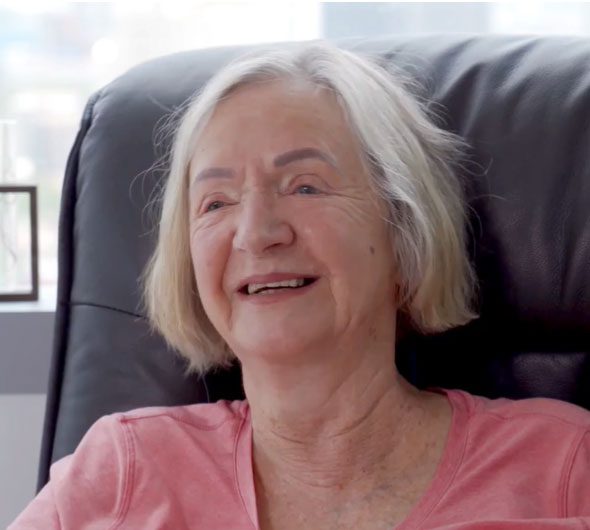
The World's leading holistic cancer centers
Scientific approach
VeritaLife Australia offers firmly grounded hope based on meticulous research and solid scientific proof. We are inspired by the many possibilities that lie beyond the default oncology treatments of surgery, radiation and chemotherapy and proud to be part of a revolution that bridges the gap between conventional and alternative cancer treatment.
We continually research cancer therapies and treatments from around the world for safe new ones that selectively eliminate cancer without harming the body and enhance the immune system. They are integrated into our existing protocols if they are found to meet the criteria of safety and efficacy we demand.
Over 50 years of experience
Our medical team is a collaboration of acclaimed physicians and specialists in medicine that collectively span over 50 years of experience in Europe, Middle East, Thailand Mexico and USA. Our doctors look at the body holistically and use targeted, integrative treatments that harness the body’s own powerful healing mechanisms.
With their long experience and expertise in integrative oncology, Verita Life is among the few worldwide that offer a unique and comprehensive multidisciplinary range of integrative therapies.
We also believe that healing a patient goes beyond the treatments alone. Testimonials confirm that Verita Life teams truly care for our patients and help them to get better through compassion and respect, as well as medicine.
Treatment innovations
Verita Life patients have access to leading-edge medical technologies and innovations as soon as they are proven safe and effective. Our treatments are backed by years of robust research and development and close relationship we have with doctors and laboratories around the world. With the outstanding skills and experience of our doctors, these collaborations have ensured that Verita Life patients are uniquely positioned to benefit from advancements in oncology whether that would be using Immune Therapies such as Dendritic Cells in ovarian cancer or Natural Killer Cells in lung cancer, Megadose Vitamin C in prostate cancer, High Dose Curcumin in colorectal cancer, and specific combination of herbal therapies in all types of cancers including breast, bone, and pancreatic.
Verita Life's Cancer Programs
- Medical Director of Verita Life Centre Bangkok
- Developed immune cell therapy protocols for different cancer treatments
- Continuously refines cancer protocols for each individual patient
- Was among the first to start telehealth for cancer before the pandemic
- Focus on patient’s medical condition as well as emotional well-being
Colon cancer patient
“Don’t hesitate! If I hadn’t come to Verita Life I am nearly sure I wouldn’t be alive today. It’s natural to have r ...Read More
C.M.
35, Australia
Colon cancer patient
“It’s a big decision, coming to Verita Life. But once I made the decision to protect my immune system, I saw res ...Read More
K.D.
43, Australia
When I was first diagnosed with bladder cancer in May 2021, my doctors’ advice was for me to undergo 3 cycles ...Read More
Yvonne Agatha
November 2022
Thyroid Cancer Patient
“The staff are the best, always ensuring you are comfortable and cared for in your medical and personal needs.”
R. L.
67, Australia

Get your FREE consultation
"We are grateful for your kindness, knowledge, and excellent care – the best we have experienced, and always with a smile! Know that you all make a monumental difference in healthcare."
Innovative Cancer Treatment Solutions: Your Guide to Care
Cancer affects millions of people worldwide and is characterized by the uncontrolled growth and spread of abnormal cells. There are several different types of cancer, each with its own unique set of symptoms, causes, and treatments.
Types of cancer
There are many types of cancer, including lung, breast, prostate, colon, and skin cancer,
among others.
Breast Cancer
One of the most common types of cancer is breast cancer, which affects the cells of the
breast tissue. Symptoms include a lump or thickening in the breast, changes in the size
or shape of the breast, and discharge from the nipple. Early detection is key, and
treatments may include surgery, radiation therapy, and chemotherapy.
Lung Cancer
Lung cancer is another common type of cancer that affects the cells of the lung. This
type of cancer is often caused by smoking and can lead to symptoms such as coughing,
chest pain, and shortness of breath. Treatment options may include surgery, radiation
therapy, and chemotherapy.
Prostate Cancer
Prostate cancer is a type of cancer that affects the prostate gland in men. Symptoms may
include difficulty urinating, decreased flow of urine, and pain or burning during
urination. Treatment options may include surgery, radiation therapy, and hormonal
therapy.
Leukemia
Leukemia is a type of cancer that affects the blood and bone marrow. This type of cancer
is characterized by the production of abnormal white blood cells and can lead to fatigue,
weakness, and frequent infections. Treatment options may include chemotherapy,
radiation therapy, and bone marrow transplant.
Cancer Stages
The stages of cancer describe the extent to which the disease has spread in the body. The
staging of cancer is important for determining the appropriate course of treatment and
predicting the prognosis (outlook) for the patient. The most commonly used staging
system for cancer is the TNM system, which stands for Tumor, Node, and Metastasis.
T refers to the size of the primary tumour and how far it has invaded surrounding tissue. N refers to the presence or absence of cancer cells in the lymph nodes. M refers to whether or not cancer has spread (metastasized) to other parts of the body.
Based on this information, cancers are usually assigned a stage from I to IV, with stage I being the earliest and least advanced and stage IV being the most advanced and widespread. The specific criteria used to determine the stage can vary depending on the type of cancer and other factors.
It is important to note that cancer staging is a dynamic process and can change as new information becomes available. Regular monitoring and reassessment are critical components of cancer care, and patients should work closely with their healthcare team to determine the best course of action.
Types of cancer treatments
Cancer is a complex disease that can take many forms. Early detection is key to
successful treatment, and a combination of treatments, including surgery, radiation
therapy, and chemotherapy, may be necessary to manage the disease. If you suspect that
you may have cancer, it is important to speak with your doctor and get a proper
diagnosis. Here are some common treatment options available:
Surgery: Surgery is a cancer treatment option that involves removing the cancerous tissue from the body. This can be done for a variety of different types of cancer and is typically used for early-stage cancers.
Radiation therapy: Radiation therapy uses high-energy beams, such as X-rays, to destroy cancer cells and shrink tumours. It can be used alone or in combination with other treatments and is often used for cancers that are difficult to remove with surgery.
Chemotherapy:
Chemotherapy is a type of cancer treatment that uses drugs to
destroy cancer cells. The drugs can be given orally or intravenously and can be used
alone or in combination with other treatments. Chemotherapy is often used for
advanced-stage cancers or cancers that have spread to other parts of the body.
Immunotherapy: Immunotherapy is a type of cancer treatment that uses the body's immune system to fight cancer. It can be used alone or in combination with other treatments and is becoming increasingly popular for the treatment of various types of cancer.
Hormonal therapy: Hormonal therapy is a type of cancer treatment that works by blocking or lowering the levels of hormones that can fuel the growth of certain types of cancer, such as breast and prostate cancer.
Targeted therapy: Targeted therapy is a type of cancer treatment that targets specific molecules that are involved in the growth and spread of cancer cells. It is often used in combination with other treatments and is becoming increasingly popular for the treatment of various types of cancer.
Stem cell transplant: A stem cell transplant, also known as a bone marrow transplant, is a treatment option for certain types of cancer, such as leukemia, that involve the blood and bone marrow. The procedure involves replacing the patient's damaged or destroyed bone marrow with healthy bone marrow from a donor.
Choosing a right treatment plan for cancer
Choosing a treatment plan for cancer is a complex process that requires careful
consideration of several factors. Some of the key considerations when choosing a
treatment plan include:
Type of cancer:
The type of cancer you have will play a significant role in determining
the best course of treatment. Different types of cancer respond differently to different
treatments, so it is important to work with your healthcare team to understand the
specific characteristics of your cancer and how they may impact treatment options.
Stage of cancer: The stage of your cancer, which describes the extent to which it has spread, will also impact the treatment options available to you. In general, early-stage cancers may be treated with surgery or radiation therapy, while advanced-stage cancers may require a combination of treatments, such as chemotherapy, immunotherapy, and targeted therapy.
Overall health: Your overall health, including any pre-existing medical conditions, will impact the treatments that are suitable for you. For example, elderly patients or those with certain medical conditions may not be able to tolerate certain treatments, such as chemotherapy.
Personal preferences: Your personal preferences and values will also play a role in determining the best course of treatment. For example, some patients may prefer a treatment that is less invasive or has fewer side effects, while others may prioritize a more aggressive approach.
Availability of treatments: The availability of different treatments will also impact the best course of action. Some treatments may only be available at specialized centers, while others may not be covered by insurance.
Integrative approaches: Integrative approaches for cancer refer to a holistic approach to cancer treatment that combines conventional cancer treatments, such as surgery, chemotherapy, and radiation therapy, with complementary and alternative medicine (CAM) therapies. The goal of integrative approaches is to enhance the body's natural healing processes and improve the quality of life for cancer patients.
Choosing a treatment plan for cancer is a complex process that requires careful consideration of many factors. It is important to work closely with your healthcare team to understand your options and make an informed decision.
Coping with Cancer
Cancer can be a difficult and overwhelming experience, both physically and emotionally.
It can impact your daily life and the lives of those around you and can lead to feelings of
stress, fear, and uncertainty. However, with the right support and resources, it is
possible to manage the challenges that come with cancer and maintain a positive
outlook.
Emotional support
Emotional support refers to the provision of comfort, care, and encouragement to
individuals who are undergoing cancer treatment. This support can come in various
forms, such as from family, friends, and healthcare providers, and it can help
individuals feel less alone and more resilient as they navigate their cancer journey.
Coping strategies
Coping strategies refer to the various ways in which individuals handle the stress and
anxiety that often accompany a cancer diagnosis. These strategies can include
mindfulness techniques, exercise, seeking out professional counselling, or engaging in
hobbies or interests. Coping strategies can help individuals manage their emotions, stay
positive, and improve their overall quality of life.
Cancer treatment is a complex and challenging journey that requires a multi-faceted approach. Emotional support, coping strategies, support groups, and help from a loved one are all important.
At Verita Life, we specialize in offering complementary and alternative cancer treatments. Our clinics are staffed by highly experienced medical teams, comprised of doctors with extensive backgrounds in Europe, the Middle East, and Thailand. Our integrative cancer treatments are tailored to each individual and are based on the latest scientific research and evidence. These treatments are unique and personalized, providing a comprehensive approach to cancer care.













